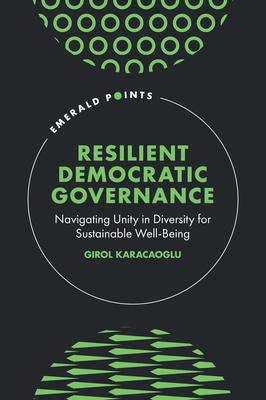Though diversity and interconnectedness are inherent and integral to the natural order, they often clash in the social world. To address this, Resilient Democratic Governance: Navigating Unity in Diversity for Sustainable Wellbeing proposes a comprehensive framework advocating for the harmonious integration of diversity and interconnectedness in social structures, emphasizing their pivotal role in building resilience and achieving sustainable wellbeing.
Girol Karacaoglu's innovative study explores the convergence of various political philosophies and social elements while still maintaining a sense of unity and cohesion in society. Through the perspectives of thinkers like Abd al-Karim al-Jili, Spinoza, Confucius, Alfred North Whitehead, Abraham Maslow, Sir Isaiah Berlin, Ronald Dworkin, Satish Kumar, and Amartya Sen, each chapter delves into how these scholars have conceptualized unity in different domains, spanning nature, creative processes, freedom, value, ecology, and economy. Karacaoglu argues that embracing this diversity-in-unity framework can serve as a guide to governance for sustainable wellbeing. His argument culminates in a reflection on the paths laid out by the Buddha and Lao Tzu, underscoring their profound insights into achieving balance and harmony in our interconnected world.
Emerging as a hopeful voice amid increasing ideological polarisation, this thoughtful work reimagines democratic governance to offer a practical guide for deliberate and transformative social and political change.
